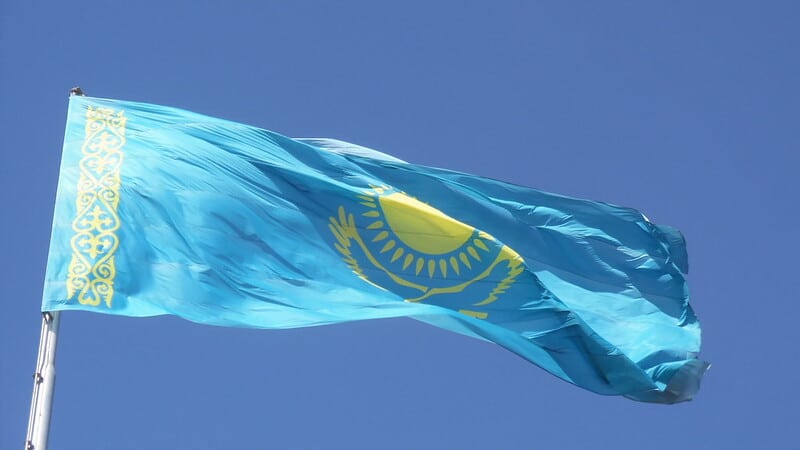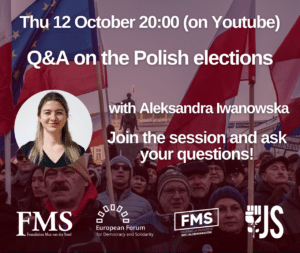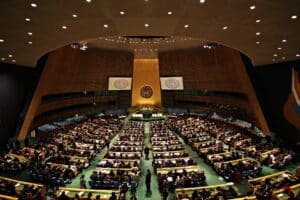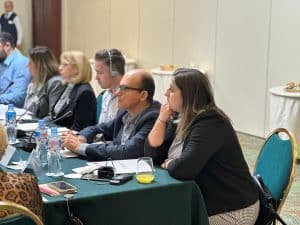Following the unrest in Kazakhstan at the beginning of January, authorities have started to flesh out their account of the events. They are now laying the blame with an international terrorist conspiracy, and have started calling the unrest a coup attempt. According to President Kassym-Jomart Tokayev, the action had been coordinated by a “single centre”, though he did not name those responsible.
Unrest in Kazakhstan
The protests in Kazakhstan were incited by anger over increasing fuel prices, and escalated into a wider protest against Tokayev’s government and the previous president Nursultan Nazarbayev. Protesters seek political liberalization, including an election system for regional leaders currently appointed by the president.
“Shoot to kill”
The protests were met with harsh police action. On the 7th of January it came to a head after the president said he ordered his troops to “shoot to kill” in order to put down the uprising. Dozens of protestors have died after the security forces opened fire, hundreds were injured, and thousands have been arrested.
As a reaction to the protests, the government in Kazakhstan stepped down, and the president fired several other high-standing authorities. President Tokayev, however, remains in power, and though the direct protests have been quelled, unrest continued.
Media coverage
The incidents in Kazakhstan have largely gone unreported, and it is still unclear precisely how many civilians were killed during the unrest. Internet has been severed across the country, mobile-phone services have been cut by the state-run KazakhTelecom, and foreigners have been banned from entering the country. Kazakhstan has never been a country with a lot of media freedom, but according to the NGO Reporters without Borders authorities have now stepped up attacks against independent journalists. This has left the government’s version of events as the dominant narrative, though there is no evidence to support the president’s claim of an international conspiracy and details remain vague.
International reactions
Regardless of the poor media coverage, the unrest in Kazakhstan has attracted attention world-wide. When the president called for assistance, Russia sent troops from the CSTO, a Russian-led military alliance, often called ‘Russia’s NATO’. Within 24 hours, troops started arriving in Kazakhstan, building up to a force of over 2,000 units. Critics state that the swift arrival of Russian troops demonstrates the Kremlin’s willingness to safeguard its influence in the ex-Soviet state. Not only Russia supports the Kazakh government: China’s President Xi Jinping praised the Kazakhstan government’s deadly crackdown on protesters as “highly responsible” in a message to Tokayev. Critics state this is because China depends economically on Kazakhstan as part of its New Silk Road initiative.
Other international actors have called for a cessation of violence. In a statement, the EU External Action Service (EEAS) said it was closely following the ongoing protests in Kazakhstan, and encouraged “a peaceful resolution of the situation through inclusive dialogue with all stakeholders and respect for the fundamental rights of citizens”. The United Nations has also urged political leaders and protesters in Kazakhstan to refrain from violence.
In a reaction to the description of protesters as “terrorists”, the excessive force, and the restrictions to media coverage, international organizations such as Amnesty International and Human Rights Watch called out for the Kazakh government to cease violence immediately and respect human rights. For years, the Kazakh government has used vague “terrorism” laws to limit free expression, peaceful dissent, and the work of civil society, and there are now concerns that the authorities will use these protests to increase their repression and further suppress human rights.
Future steps
President Tokayev declared he will present parliament with a new Cabinet, tasked specifically with addressing social and economic problems. Furthermore, a new prime minister has been appointed: Alikhan Smailov, a long-serving public servant. Smailov has since announced that plans will be made to decrease the wealth gap. The unrest has died down for now, but sceptics stay critical and the question lingers whether it will remain calm in the country and what political changes will really come from the so-called “coup”.
Sources: HRW, AlJazeera, EurActiv, Reuters, RadioFreeEurope
Photo: Flickr



